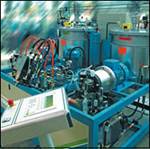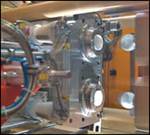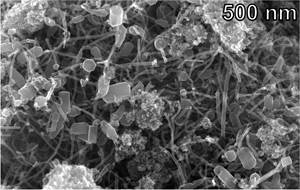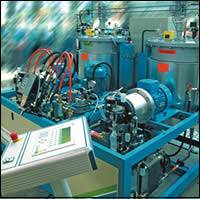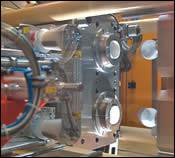50 Ideas That Changed Plastics
Very few readers of this issue can remember, or even imagine, what it was like when an injection molding machine did not have a screw, but only a smooth-bore plunger.
- Postindustrial
- Gas & Water Assist
- Multicomponent
- Commodity Resins
- In-Mold Decorating
- Extrusion
- Additives
- Stretch Blow Molding
- Thermoforming
- Tooling
- Pipe, Profile & Tubing Extrusion
- Blow Molding
- polyolefins
- nanocomposites
- All Electric & Hybrid Machines
- Processes
- Barrier Blow Molding
- Recycling
- Automation
- sustainability
- Postprocessing
- Mold Simulation
- Compounding
- Sheet Extrusion
- Film Extrusion
- Processes
- Injection Molding
- Postconsumer
- Molds & Tooling
- Multiscrew
- Hot Runners
- monitoring
Very few readers of this issue can remember, or even imagine, what it was like when an injection molding machine did not have a screw, but only a smooth-bore plunger. Very few can remember a time when there were no twin-screw extruders; no multi-layer film, sheet, or bottles; no accumulator-head or injection blow molders; no polypropylene, HDPE, or polycarbonate; and no such thing as RIM or rotomolding or structural foam—or even a melt indexer. How and when these technologies got started are just some of the little-known stories that are told in the following pages. Fifty stories, in fact—one for each year this magazine has been reporting on the latest ways to manufacture with plastics.
So many essential technologies surfaced in the last half-century that it was perplexingly difficult to select just 50 to celebrate here. We invited long-time industry experts in all areas of plastics to help us make those choices. Turn the page to see who they are.
Even with the help of nearly 2000 years of collective plastics experience, our editors had to make some tough calls. For example, we ruled out microprocessor controls because the computer revolution has had a universal impact, and plastics rode the wave along with every other industry. Likewise, we left out printing and decorating technologies because they had prior history with other materials. We also had to skip worthy candidates in some fields so as to broaden our coverage to all areas of plastics. Please note that we have not presented these 50 innovations in any particular order, except for the first four, which did pull the most votes.
Some readers may disagree with our choices, and some may argue over who deserves pioneering credit in a particular field. Our editors found it much harder than expected to retrace the history of these 50 innovations. So few eyewitnesses to this history are still accessible for interviews. Relatively little has been published on this field of technological history. And many records were lost or discarded in the myriad corporate mergers over the decades. So we often had to rely on individuals’ memories of past decades. And we had to resolve inevitable disagreements over some dates and facts.
You’ll see that it was worth it. These are important stories. They reveal the origins of so much that we take for granted—in brilliant intuition, hard work, or plain good luck.
Top 50 Innovations
- Reciprocating Screw Injection
- Polypropylene
- HDPE
- Polycarbonate
- Twin-Screw Extrusion
- LLDPE
- Sheet Molding Compound
- Ultrasonic Welding
- Stretch-Blow Molding
- Desiccant Dryers
- ABS Resins
- Parison Programming
- Structural Foam
- Barrier Screws
- Accumulator-Head Blow Molding
- Super-High-Heat Thermoplastics
- Melt Indexers
- Carbon Fiber
- Injection Molding Simulation
- Thermoplastic Elastomers
- Hot Runners
- Takeout Robots
- Pressure Forming
- Rotary Thermoforming
- Halogenated Flame Retardants
- PET and PBT
- Film/Sheet Coextrusion
- Multi-Material Injection
- Multi-Layer Blow Molding
- Hindered Phenolic Antioxidants
- HALS UV Stabilizers
- All-Electric Injection Presses
- Rotational Molding
- Gas-Assist Molding
- In-Mold Decorating & Labeling
- Cavity-Pressure Sensing
- Spray-Up Composites
- Injection Blow Molding
- Pur Thermal Insulation
- RIM
- Foam Extrusion
- Underwater Pelletizing
- Chemical Blowing Agents
- Spiral Dies for Pipe & Blown Film
- Auto Gauge Control for Blown Film
- Auto Gauge Control for Flat Dies
- Biaxial Film Orientation
- Film/Sheet Thickness Sensors
- Density Separation of Mixed Waste
- Computerized Color Matching
Related Content
Research Suggests Path From Waste Plastics to High Value Composites
Flash joule heating could enable upcycling of waste plastic to carbon nanomaterials.
Read MoreRead Next
OPP Bottles: Has Their Time Come?
Maybe this time the often-predicted breakthrough will actually occur. What could make the difference are improved resins, clarifiers, and machinery.
Read MoreBarrier Bottle Technologies Square Off
With single-serve containers raising shelf-life demands, packagers are seeking the barrier with the best cost-performance for PET bottles. Multilayer seems to have the upper hand, but monolayer, coating, and oxygen-scavenger technologies have all won niches.
Read MoreIn-Mold Labeling Catching on in North America
Already a familiar sight on European store shelves, the eye-catching appeal of "IML" is gaining traction among North American injection molders. The latest tooling and automation designs can handle the higher volumes needed here.
Read More


